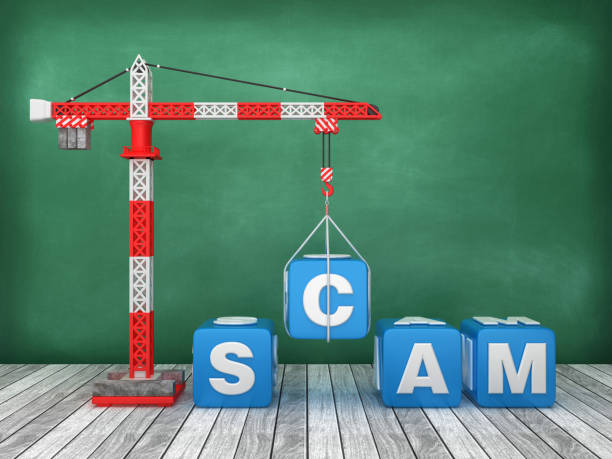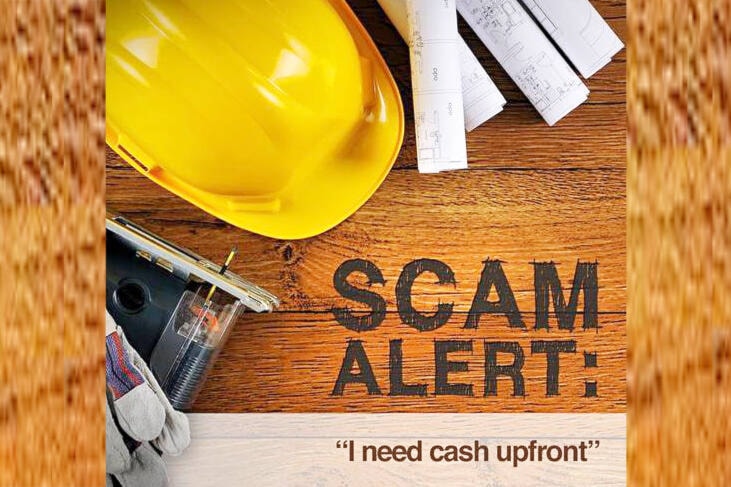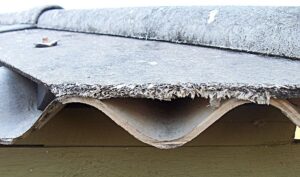Nigeria has different construction companies growing rapidly and featuring different residential, commercial, and infrastructure developments. This growth has led to a concerning increase in construction scams and unsuspecting investors, clients, and even contractors fall victim to their trap. Be well informed that these top construction scams often promise high-quality results but deliver cheap work or vanish entirely after payment. The ability to differentiate between legitimate construction companies and construction scammers is quite challenging. But with this article, you will be guided on how to identify red flags and be knowledgeable about the common tactics used by scammers in the construction industry. These tips will serve as a watch wall on safeguarding your investments with the understanding that we have that scammers not only lead to financial losses but also compromise safety and trust within the industry. Make sure you pay close attention to number 7, as it’s one of the most surprising and costly construction scams in Nigeria to watch out for.

Types of Top Construction Scams in Nigeria.
1. Fake Contractors
Fake contractors operate like legitimate professionals to defraud unsuspecting clients. They typically lack the necessary skills, experience, and certifications to run a project, yet they employ convincing tactics to build trust and secure contracts. Fake contractors are scammers who attract clients with unrealistically low quotes, presenting themselves as a cost-effective option. When hired, these top construction scammers demand large upfront payments from the client, begin the project with substandard materials, and eventually abandon the project.
2. False Procurement Scams
False procurement scams are fraudsters involved with the transactions of building materials and supplies. They may charge you for premium-grade materials but deliver substandard, counterfeit, or incomplete products instead. Scammers also provide false invoices to create the illusion of legitimate transactions. They make unnecessary excuses for delivering a few materials due to transportation issues or unforeseen costs. But by staying vigilant, clients can avoid falling victim to false procurement scams in the construction industry.
3. Nonexistent Construction Companies
This fraudulent operation is without a legitimate business foundation or presence. They act as reputable construction firms to deceive clients into paying for services they never intend to provide. They are fond of showcasing projects, portfolios, or testimonials to build trust and lure clients into signing contracts. Non-existent construction companies provide clients with fake email addresses, phone numbers, and business addresses to appear credible and legitimate. However, conducting thorough checks before hiring a contractor can prevent you from falling prey to this common top construction scam.
4. Fraudulent Subcontracting
Fraudulent subcontracting happens when the principal contractor employs subcontractors who do not possess the appropriate skills, experience, or credentials to complete the task at hand. This reduces the quality of work completed and can lead to subcontracting construction results, increasing project costs and potential safety risks, which may affect the reputation of everyone involved in the project. To avoid this issue, acquire a list of the contractor’s previous clients or projects and visit their location to evaluate their performance. You can also thoroughly check and demand accountability from all the parties involved to safeguard your investments.
5. Multiple Project Mismanagement
This occurs when a contractor or construction company undertakes more projects than they can manage effectively at the same time, fully aware that they lack the necessary resources, manpower, and time to manage them effectively. This leads to delays, incomplete projects, and subpar work. In some instances, the contractor may decide to leave the project halfway because their focus has shifted to more profitable ventures. The client is therefore left with an unfinished project and significant losses.
6. Overinflated Budgets
This happens when the construction firms intentionally inflate project costs beyond the actual requirements to maximise profits. They excuse nonexistent costs like fake permits, labour charges, or equipment rentals in the project budget. Contractors may also collaborate with suppliers to provide overpriced materials to receive a kickback in return.
7. Fake Legal Documentation
When it comes to top construction scams, fake legal documentation is the most devastating and costly trap for clients. Legal documentation serves as the cornerstone of all construction endeavours, confirming that the land, permits, contractors, and certifications are valid and in line with regulatory standards. Fake certifications for materials or project approvals can lead to unsafe buildings, endangering lives and property. By thoroughly checking each document and collaborating with reliable professionals, you can avoid falling victim to this top construction scam.

Red Flags to Watch Out When Hiring a Contractor.
1. No Physical Office or Address
Having a physical office or address is a basic expectation for any trustworthy construction firm. These top construction scams will insist on meeting the clients in a neutral location like a cafe. This gives them a great edge to be able to scam their clients because when issues arise, there will be no reliable place to reach the contractor.
2. Unrealistically Low Quote
This low quote may seem like a budget-friendly option, but it often leads to hidden costs, low-grade materials, inadequate workmanship, abandoned projects, and regular delays from construction scams.
3. No Written Contract
A project with the absence of a written contract is one of the simplest ways for scammers to take advantage of clients, making it an important red flag to recognise. To ensure clarity and accountability throughout the construction project, it is advisable to have a well-written contract. This will stand as your best defence against scams.
4. Rushing The Decision
Avoid making quick decisions because it can lead to expensive mistakes and high chances of falling for top construction scams. A reliable contractor will respect your need to carefully evaluate the project. Clients should take their time to verify information and weigh their options. By so doing, you can safeguard yourself against scammers and ensure a successful project outcome.
Ways to Avoid Falling Victim to Top Construction Scams in Nigeria.
Construction scammers are increasingly common in Nigeria, resulting in substantial financial loss and emotional distress for clients. Nevertheless, the act of taking the right precautions can protect clients from fraudulent practices. These practical steps that will prevent you from becoming a victim of the top construction scams are listed below.
- Demanding a written contract,
- Verify the contractor’s credentials,
- Inspect legal documentation,
- Avoid large upfront payments,
- Beware of unrealistically low quotes, and
- Confirm a physical office or address.
CONCLUSION
Construction scams in Nigeria are a common and unpleasant problem that affects many naive clients. They manifest in various misleading forms, such as fake contractors and fraudulent purchasing strategies. These strategies not only threaten the financial well-being of the client but also put the safety and integrity of building projects at risk. Clients should take proactive actions to protect themselves by detecting common tactics used by scammers, such as offering unreasonable inexpensive prices or forcing clients to make rapid decisions; clients can take proactive steps to protect themselves.
To avoid construction scams, it’s important to conduct thorough research, obtain written contracts, and verify the credentials of contractors along with their legal documentation. Also, ensure to visit their physical office, refrain from making large upfront payments, and request detailed project proposals to maintain transparency.
Finally, you can protect your investments and ensure that your construction project is handled by reliable, professional contractors by staying vigilant and informed.



